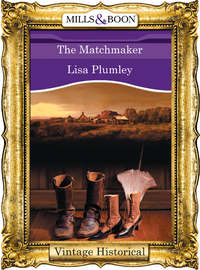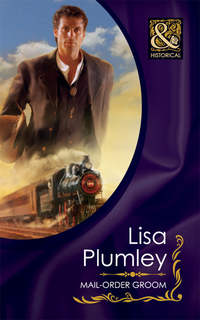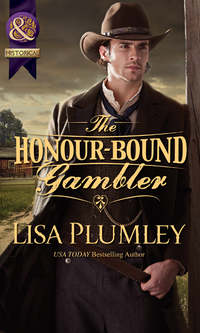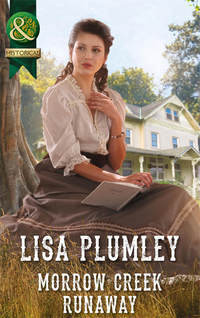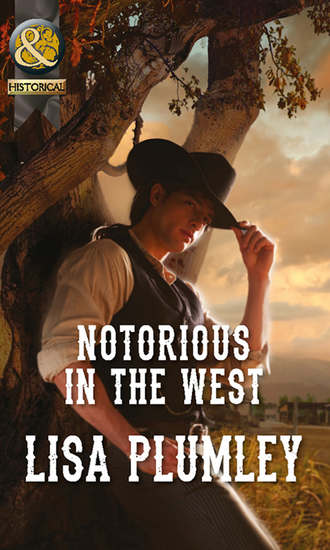
Полная версия
Notorious in the West
The collecting crowd was right to be interested, Olivia reasoned as the peddler’s avowals grew ever more animated and persuasive. At least some of the claims the man was making had to be true. This was the nineteenth century after all! Miraculous scientific achievements had taken place.
Some of those achievements had been made by women, too. Olivia knew that because she loved to read. She’d learned about Mary Fairfax Somerville’s experiments with magnetism and about Maria Mitchell’s astronomical discovery of her new comet. Olivia had daydreamed about creating and publishing botanical photograms like Anna Atkins or unearthing a Plesiosaurus fossil like Mary Anning. She’d thrilled to periodical accounts of Lady Augusta Ada Byron’s invention of the analytical engine. Of course, she also idolized pioneering medical professionals such as the physician Elizabeth Blackwell and the tireless nurse Florence Nightingale. To Olivia, those women were true heroines.
While her best friend Annie’s oak bureau held hairbrushes and pearled pins and precious scraps of scented soap, Olivia’s makeshift crate-turned-nightstand held Familiar Lecturers on Natural Philosophy by the intellectual Almira Hart Lincoln Phelps. The work was somewhat dated, but it was fascinating—as was The Mechanism of the Heavens by Mary Somerville, another of her favorites. Naturally, Olivia also treasured her well-thumbed copies of texts by authors such as Charles Darwin and Jean-Baptiste Lamarck, but she preferred reading the work of female scientists and scholars. Somehow their achievements felt all the closer to her own life...and all the more real for it.
Even if those women didn’t live in a single-street Western town with not much more to brag of than a church, a popular saloon and more tobacco spittoons than were strictly reasonable.
As far as Olivia was concerned, anything was possible. The lives of the great women she’d studied proved it. They’d all asked questions, encountered important turning points in their lives and let their curiosity guide them on to greatness.
Maybe this encounter with the peddler’s scientific wonders was her own call to greatness, Olivia fancied. So, fully ready to begin her own quest for enlightenment, she stepped a little nearer. She picked up one of the bottles for closer study.
As she did, though, someone jostled her. Startled, Olivia held tight and glanced to the side...only to see a familiar and dispiriting sight. Old Mr. Richter, one of the railway foremen, was staring at her with a contemplative expression on his face.
He tipped his hat. “Afternoon, Miss Mouton.”
In time with his greeting, his gaze dropped to her skirts. He peered at their simple calico folds as though hoping to penetrate them, then moved on to her high-buttoned bodice...and lingered. His attention took a very meandering path back to her face, leaving her feeling fidgety and uncomfortable in its wake.
Ugh. Why did men have to ogle her? She’d noticed this happening more often as she grew taller and more mature. Her father insisted the townspeople were merely being friendly. Olivia had her doubts. The leers she garnered didn’t feel like simple neighborliness. But without a mother to rely upon for advice—her own poor mama had died during the journey westward—Olivia was on her own, swimming in a sea of adult interactions she wasn’t entirely prepared for and certainly did not want.
Politely, she inclined her head. “Hello, Mr. Richter.”
With that accomplished, Olivia directed her attention back to the patent remedy in her hand. Studiously, she examined its label. It purported to use bottled extractive magnetism as a curative. That was an innovative approach that Olivia had never heard of before. According to Mary Fairfax Somerville’s work—
Before she could consider the scientific implications further, Mr. Richter’s brusque voice intruded on her thoughts.
“Did your pa talk to you about my prop’sition?”
Oh, no. The railway foreman had to be referring to his facetious offer—made at her father’s tent hotel over cups of Old Orchard whiskey late one night—to “get that girl’s head outta them books and into some wifely duties, where it belongs!”
“I thought you were joking.” Reluctantly, Olivia postponed her examination of the magnetism-based curative. She gave him a direct look—one she hoped he’d perceive. “If you were joking, Mr. Richter, that would save us both from embarrassment.”
He did not recognize her attempts to sidestep the issue. Instead, Mr. Richter merely scratched himself absently while the medicine-show man began making sales and collecting coin.
“Ain’t nothin’ embarrassing about getting hitched to a beautiful woman.” He spat tobacco juice. “No, ma’am.”
“Mr. Richter!” This time it was Olivia’s turn to gawk. And likely to blush, as well. “I am thirteen years of age!”
He shrugged. “That’s old enough, if your pa agrees.”
“My father will not agree.”
“Then I’ll bide my time.” Plainly unperturbed and undeterred, Mr. Richter tipped his hat. “I can be patient.” He cast a glance at the peddler’s preserved exotic fruits, raised an eyebrow at their scandalous promises to bestow “bull-like stamina” then sauntered away without purchasing anything.
Irked to have had her stimulating outing interrupted for such a nonsensical reason, Olivia turned toward the medicine show’s wagon—only to come face-to-face with the alert gaze of a dark-haired, lean-looking Romany man. She recognized him, having glimpsed him earlier, as the medicine show’s driver and bagman.
Evidently, he’d overheard her conversation with Mr. Richter, because he aimed a disgusted glance at the foreman.
“Some men, eh? They have no finesse.” The bagman leaned confidingly nearer, his warmth compelling in the cool mountain air. “A girl like you deserves better. You are—” he gave an elegant wave “—special. Very special. I saw that right away.”
Olivia couldn’t help feeling vindicated by his perceptiveness—and a little thrilled, too. “Well,” she said, “that puts you one boot ahead of Mr. Richter, doesn’t it?”
“No.”
“Oh. Well. I’m sorry. What I meant was—”
“I am at least two boots ahead of him,” the bagman corrected her with a teasing grin. “Give me time. I will show you this.” Convivially, his gaze dipped to the remedy bottle in her hand. “You are interested in curatives? In perhaps traveling far and wide, like me, and seeing all the wonders of the countryside?”
“I am!” At least this man hadn’t tried undressing her with his eyes, Olivia reflected. He obviously—amiably—appreciated her intellectual curiosity, too. “Most people in Morrow Creek don’t think much about what’s outside it. But I do. All the time!”
The bagman gave a wise nod. “That is two of us, then. But you do not need any remedies of this kind.” Gently, he touched the bottle in her hand. “This one is for—” he paused, offered a few words in an accented dialect she didn’t understand then translated “—old people. You are not old. You are...magnificent!”
He kissed his fingertips as he said it, then flung his showy kiss to the territorial skies in a grand, gallant gesture. His dark eyes sparkled with good humor and attentiveness. Olivia couldn’t help liking him—or being intrigued by him. His close-trimmed beard lent him a keenly romantic air. His tattered finery and unfamiliar European inflection gave him an exoticism that felt far too exciting for staid Morrow Creek.
Finally. Here was someone who’d speak seriously to her. Someone who’d respect her curiosity and her bookishness alike.
Heaven knew, most people in Morrow Creek couldn’t fathom either of those qualities. Annie expected Olivia to gush over dressmaking illustrations in Godey’s. Her father expected her to be helpful be quiet, and be in bed by ten. Nothing more.
“Thank you,” Olivia said, quickly dispensing with the bagman’s flattery. “Now. This nostrum,” she said eagerly, raising the remedy bottle again. “Can you explain how the magnetic properties survived the bottling process? Surely they’re too volatile to withstand boiling?”
The man laughed. “Ah! You are delightful!”
Delightful? “Thank you, but I truly am interested in the process,” Olivia explained, “and in magnetism in general.” Didn’t he realize that was what made her “special” in his eyes? “You see, Miss Fairfax Somerville’s experiments proved that—”
He startled her by clasping his hand, warm and weathered, atop hers. “There is no need for this pretense. I am here! You have captured my attention.” Like magic, the bagman deftly withdrew the curative she’d held. “You do not care about this.”
Momentarily captivated by the sleight of hand he’d performed, Olivia stared. Then she blinked. “Yes, I do.”
His wave dismissed her. “Women do not think of such things. You were pretending, to make me see you. And I do see you.”
With a charming manner, he gave her a bow to prove it. But this time, Olivia belatedly noticed he was using that chivalrous gesture to sneak a peek at her ankles. The rogue!
“Never mind. I’ll ask your employer for the information.”
Staunchly, Olivia marched to the peddler’s wagon and the circle of townspeople. She waited, feeling—and ignoring—the bagman’s flirtatious gaze on her all the while. When finally the peddler turned his attention to her, she was prepared.
“Good afternoon,” Olivia said firmly. “I do not want a proposal or a proposition from you. All I want to know is—”
“Yes!” The peddler widened his eyes. “You!”
“—how your curative with the bottled extractive magnetism was created. Are you the inventor? Or did someone else—”
But the peddler only cast out his arm to silence the waiting crowd. He stared raptly at her. He nodded.
“You are perfect!” he cried dramatically. “Perfect!”
Fully out of patience now, Olivia put her hands on her hips. “Unless you mean I’m perfect at asking questions you can’t wait to answer, I honestly don’t see what that has to do with—”
“You must agree to pose for me,” the peddler interrupted. He stepped nearer, then chuckled. “I mean, for a lithographer, of course. I need a model to grace the bottles of my forthcoming Milky White Complexion Beautifier and Youthful Enhancement Tonic. With your face on the label, I’ll sell thousands!”
She stared at him, astonished. A model? Her?
Rudely, he reached for her jaw. He turned her face to the sunshine. He gave an evaluating sound, then turned her face in the opposite direction. He laughed with outright glee.
Olivia jerked away her face. “Sir! I am not a horse.”
“Well, you are a mighty fine filly.”
She frowned. “And you are a rude man. I will not—”
“I’ll pay you,” he persisted, annoying her further by talking right on top of her. “I only need a few sketches.”
Olivia crossed her arms, feeling frustrated. Could no one see that she had a mind as well as a face and figure? Could no one understand that there was more to Olivia Mouton than frilly skirts, blue eyes and embarrassingly burgeoning bosoms?
She was accustomed by now to miners and railway men leering at her. But those men were outliers. They scarcely saw another living soul for weeks at a time while they were working. They could be forgiven for their resulting lack of social graces.
But this had been her chance—this medicine show and these well-traveled, experienced men—to be recognized as a kindred spirit, as a person who was interested in scientific progress, miraculous medicine and the world beyond her own small town.
“I’ll pay you handsomely,” the peddler persisted. “All I want is your likeness.” He spread his hands in the air as though envisioning rows of labeled bottles, an enraptured expression on his face. “In my line of work, a beautiful girl is...priceless.”
“If that’s the case, then you can’t afford me, can you?”
For the first time, the peddler seemed exasperated.
Olivia didn’t care. “I don’t think you know what’s in your remedies. I don’t think you are a man of science at all.”
The peddler frowned. “Watch your mouth, girl.”
“I was trying to give you the benefit of the doubt,” Olivia went on, refusing to be cowed. “But the truth is, Mary Fairfax Somerville’s published work proves that magnetism cannot be used in extractive form. It cannot be bottled. So your remedy—”
The peddler stepped nearer, appearing ready to spit nails.
“—is nothing more than sheer quackery, sir!” Olivia finished bravely, fired up now. “And I would rather die than allow my image to grace bottles of your do-nothing ‘cures.’”
The crowd of her friends and neighbors gasped. But Olivia finally felt satisfied. She’d said her piece. She’d made sure the people of Morrow Creek would pay attention to her mind for once, instead of her face and figure. She was proud of that.
After all, she could have done worse—especially on a day when she’d been presented, at the tender age of thirteen, with one unwanted marriage proposal, one illicit flirtation and one tawdry offer to reduce herself to a mere image to sell nostrums.
Proudly, Olivia turned to make a triumphant exit.
Instead, she almost ran smack into her father. Henry Mouton had obviously come to fetch her. His kindly, knowing expression said that he’d expected to find her there. In the least proper place to be. Doing the least ladylike thing possible. Again.
To her dismay, he shook his head in disappointment.
Olivia’s heart sank. She so wanted her father to be proud of her. But however she turned, she seemed to misstep.
Swiftly, she reassessed the situation. She took in her father’s beloved face, his world-weary stance and the handful of posted bills he held in his grasp. He’d plainly been to the post office before coming here and had found several additions to their overall indebtedness waiting there for him.
They could use any money she could bring in, Olivia knew. Running their tent hotel wasn’t particularly lucrative. Theirs was a hand-to-mouth existence. Although her father had been seeking investors in The Lorndorff’s future, so far there had been no takers. As far as Olivia knew, they were on their own.
A windfall for having her likeness lithographed would go a long way toward paying their bills. Olivia had her pride. But compared with her love for her father, everything else paled.
“Unless...” she called to the peddler as he turned away, “you could assure me that your new remedy works?”
Obviously heartened, he grinned. “Of course it works!”
Belatedly, Olivia realized that the man wasn’t actually assuring her. He was assuring her father. Because everyone knew that a small-town girl like her didn’t have the mental capacity to understand scientific principles. Wasn’t that correct?
Gritting her teeth, Olivia made herself smile back at him. If downplaying her intellect was what it took to salvage this situation, then that was exactly what she’d do. For her father.
“Very well! If my father agrees—” here, she cast a cautious glance at him “—I’ll simply choose my prettiest dress and pose!”
At that, the peddler and the townspeople surrounding him released a collective pent-up breath. It was, Olivia discerned, as if they’d all been made wholly uncomfortable by her outburst. Including her father. Now, though, even he appeared relieved.
That was all the assurance Olivia needed. From here on, she vowed to herself, she’d never give him another reason to feel disappointed in her. She’d be prim. She’d be proper. She’d finance a piece of their future with her face and feel happy about it. Because she wanted to please her father. She wanted to know that their friends and neighbors approved of her. She wanted to belong somewhere. It was clear now that the only path to those goals was paved with ruffles and lace and rosewater perfume. It was overlaid with delicate fainting spells and crowned with an avowed interest in needlework. It stomped on her books and ignored her curiosity. It squashed her spirits.
The respect Olivia craved felt entirely out of reach.
Maybe it always would dangle beyond her grasp.
But at least she could choose another path for herself, she reasoned. At least she could step deliberately and wholeheartedly into her future. At least she could do that.
So that was how, on the day when she’d dreamed of being welcomed into intellectual and scientific society—however dubiously framed by a medicine show wagon and a saucy Romany driver—instead Olivia Mouton found herself being inducted into the ranks of the verifiably beautiful. For better or worse, beauty was her sole oeuvre now. No matter how much she loathed its fripperies, she’d simply have to get used to it.
Without her so-called beauty, it was clear to Olivia now, she was no one at all. And that was something she could not bear. So she put on a smile, raised her skirts and went to assume her unwanted role as the prettiest girl in Morrow Creek.
Chapter Three
June 1883, Morrow Creek, northern Arizona Territory
Shrouded by darkness, Griffin Turner stood alone on the train depot platform, surrounded by muddy planks and ponderosa pines and unlimited star-spangled skies, watching the westbound train that had brought him churn its way into the distance.
For the first time in a long while, no one rushed to help him, to kowtow to him or to take his baggage. No one hurried to curry his favor or to ask him to invest in one foolhardy venture or another. No one cared who he was or why he’d arrived.
For now, that was exactly the way Griffin liked it. He’d chosen this rusticated town with a drunken dart toss at a map of his acquisitions and holdings. From the looks of the place, he’d chosen correctly. No one would bother him here. No one would look at his face and laugh, the way she had.
You thought I would actually marry you? Oh, Griffin...
At least she’d called him Griffin, he reflected dourly as he shouldered his rucksack and adjusted his single valise. She could have called him much worse. She could have rejected his proposal with one of those detestable nicknames the press had bestowed on him—the ones they used in their scandalous stories.
The Tycoon Terror. The Business Brute. The Boston Beast.
He’d earned those nicknames, Griffin guessed. He’d earned them through years of scraping and fighting and doing his utmost to raise himself from his hardscrabble beginnings to his current position of success. His only mistake had been in believing that not everyone trusted what they read in the tabloids—in believing that she, most of all, wouldn’t swallow his legend whole.
It was ironic, really, Griffin decided as he surveyed the sleepy, shuttered town below through gritty-feeling eyes. Part of his fortune was based in publishing—in printing stories about disreputable figures just like himself. He’d recognized early on that people loved mudslinging. They loved gawking at strangeness. They loved feeling superior...to people like him.
To people like Hook Turner.
With the publishing arm of his business interests, Griffin gave them that. He gave them supremacy and entertainment and a break from tedium. In return, the press had given him a notoriety that bothered him not a whit. Griffin liked being notorious. He liked being hard. He like being intimidating. He liked knowing that—even though he’d assembled a profitable empire in manufacturing, real estate, publishing and various entrepreneurial ventures—his competitors still saw him as an eye-blackening scrapper from the tenements...as a man who’d give his all to win, because he didn’t have anything to lose.
The punch of it was, Griffin had had something to lose. Finally, he’d had something to lose, and he’d lost it. He’d lost it when he’d arrived on Mary’s doorstep and proposed to her in her family’s humble parlor and seen his longtime dreams dashed.
Oh, Griffin...
The pity in her voice had gutted him. He’d thought he’d finally had enough—enough to impress Mary with, enough to make up for his shortcomings with, enough to prove himself with.
Instead, he’d learned that he could never have enough. He’d gotten it through his thick Hook Turner head that he could never be enough, despite all he’d accomplished. So he’d drowned himself in whiskey. He’d thrown that fateful dart. He’d boarded a train westward with not much more than the clothes on his back, and he’d escaped from a life of hoping for more.
From here on, all Griffin wanted was to be left alone.
Alone to brood. Alone to forget. Alone to enjoy the luxuries he’d worked so hard to attain...and now had no one to share with. Not that he needed anyone to share them with, Griffin told himself. He did better alone. He always had.
He crossed the platform with his boots ringing against the lonesome sound of wind whooshing through the pines, then stopped at the crest of the hill leading to the single road to town. Morrow Creek lay before him, forewarned of his arrival with a telegram but nothing else, ready to welcome him with open arms.
At that sap-headed thought, Griffin gave a wry headshake. He’d never been welcomed by anyone except Mary and her family—and later, more grudgingly, his father—so he had no idea why such a sentimental notion would pop into his mind.
If given the chance, he knew, the people of Morrow Creek would turn their backs on him. Assuredly, they’d first find the wherewithal to point and snigger, but they’d turn on him all the same. The trick was, Griffin understood now, to not care.
Here, he’d be left alone. If he wasn’t, he swore as he strode toward town, he’d use his considerable leverage to change that. After all, he owned at least half the property that Morrow Creek’s citizens had built their saloons and shops and stables and houses on. Until now, Griffin had been a genial absentee landlord, but that could change overnight. His new neighbors would give him what he wanted. He intended to make sure of that.
The Boston Beast had arrived. Soon everyone would know it—beginning with the staff of The Lorndorff Hotel, his first and last destination, where Griffin meant to make his home for the foreseeable future. If he had to, he’d take over the place.
He hoped it wouldn’t come to that. But as a pair of ragged miners saw him coming down the street, gave a yelp of surprise when they saw his face then scurried to the side to avoid him, Griffin changed his mind. Suddenly, he felt in the mood to crush anything or anyone that displeased him...and he felt like starting now. Grimly, he shook out his wild, dark hair, pulled his flat-brimmed hat low over his eyes and took himself off to The Lorndorff Hotel, where—if they knew what was good for them—everyone from the merest maid to the most autocratic manager would be on their toes. Otherwise, he’d know the reason.
* * *
In retrospect, Olivia Mouton knew she should have realized something was amiss from the moment she finished breakfast in the sunny dining room of her father’s Lorndorff Hotel and heard the bellman chin wagging with the desk clerk as she passed by.
“I heard he’s the terror of Boston,” the bellman was saying in a scandalized tone, “with eyes like the devil and a fancy dark coat that drags along on the ground when he stomps by—prob’ly on his way to put some orphans on a chain gang or some such.”
“Pshaw. The way I heard tell, he could put grown men on that chain gang of his and get no guff,” the clerk replied with an offhanded wave hello to Olivia. “I ain’t the one who saw him, mind, but the night clerk told me he was about seven feet tall—”
“Seven feet? Holy moly!”
“—with a fully loaded gun belt and knives strapped to both legs. Dressed all in black, he was. Couldn’t scarcely see his face, ’specially with all that hair. Like a mountain man—”
“I heard he brung a huge ole bag of money with him.”
“—only fancier,” the clerk said with a nod, “but with that same no-good attitude. As if he’d sooner sock you than say hello. I heard he commandeered the train that brung him. Forced ’em to turn off their track and go his way to Morrow Creek.”
At that, the bellman whistled, apparently impressed. “Do you reckon he’s really him? I know Mr. Mouton got that telegram yesterday, but I thought Griffin Turner was practically a ghost.”


